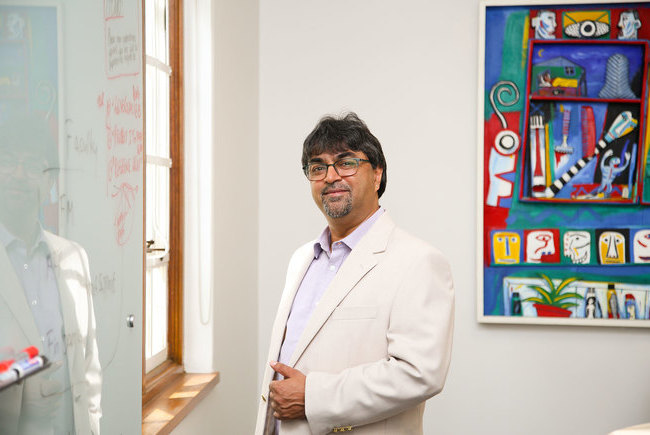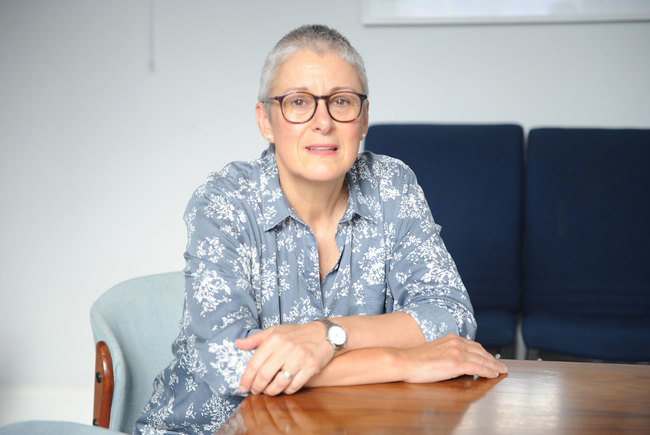Chief Operating Officer’s report
19 October 2022 Read time 6 min.
Department of Finance
To maintain financial sustainability, processes and controls have been implemented to strengthen governance over financial resources. To enable the university to achieve its set objectives and realise meaningful diversity in its various income streams, much emphasis has been placed on better integrating the planning, resource allocation, budgeting, and capital allocation processes. The university and the higher education sector in general continue to face external funding challenges and the reduced funding from government and National Student Financial Aid Scheme (NSFAS) are being considered simultaneously.
The Council Controlled Unrestricted operations yielded a surplus of R140 million (R39.9 million in 2020). Specifically funded activities continue to perform well, yielding a surplus of R1.2 billion (R927 million in 2020). Student and staff housing experienced a deficit of R60 million (R321 million in 2020). Towards the end of 2021, the market recovered from the impact of COVID-19 and this is evident in the increase of 21% from investments (R4.4 billion in 2020 to R5.3 billion in 2021). There has been a general increase in revenue in various areas (total recurrent revenue, net-fee income, income from research contracts, total assets).
Human Resources Department
Organisational development and effectiveness
The Human Resources Department played a valuable role in supporting the recruitment and selection practices in line with the Employment Equity guidelines that were adopted. The implementation phase of the SAP SuccessFactors e-Recruitment module commenced for activation in the second half of 2021.
The SuccessFactors Learning Management System was used to collect 75% of the data for the 2021/22 Workplace Skills Plan submission to the Education, Training and Development Practices (ETDP) SETA. Efforts are ongoing to encourage more learning hubs to utilise the system and those who are using it already to better utilise the more advanced system capabilities.
HR analytics, risk, systems, payroll and administration
The SAP Fiori Employee Self-Service platform was implemented in November 2021. The application can be accessed from any browser across all smart phones, thereby increasing accessibility to all staff.
Staff well-being and reward
Many staff found it difficult to adapt to the remote-working model and this was exacerbated by the sense of social isolation for many, coupled with work disruptions, balancing family routines, economic instability, personal and community grief and loss, and staff members struggling with “long COVID”. These factors have contributed negatively to the mental health and well-being of UCT staff, which has been a key area of focus in 2021.
Improved support to staff includes the Staff Wellness Section facilitating a long-COVID-19 support group for those experiencing protracted symptoms and difficulties following COVID-19 illness or loss. Clinical experts provided practical guidance and support to the participants. Interventions in the form of counselling were made available to staff who had experienced the impact of COVID-19. This included individual sessions, group counselling (to cope with work-related trauma), and domestic (family) counselling.
In response to the mental health concerns raised in 2020, line managers attended the Mind@work training in 2021. The aim of this course is to assist managers in understanding the key issues associated with mental illness; identifying decreased work performance; acquiring skills on how to discuss specific issues with the employee; knowing how to refer cases; and accommodating employees with mental illness.
Implementation of increased funeral cover and extended funeral cover
An agreement was reached with the Coalition of Unions for the implementation of revised funeral cover, where the group cover allows for affordable funeral cover for immediate and extended family.
UCT Retirement Fund restructure project
The purpose of the project (implemented on 1 October 2021) was to restructure the retirement fund contributions:
- to simplify the UCTRF structure by removing the Deemed Pensionable Amount
- to allow greater flexibility for savings contributions and death cover
- to ensure the majority of members have reasonable risk cover and retirement savings.
Approval of revised policy on academic annual leave
As part of the substantive agreement reached with the Academics’ Union, a revised policy on academic annual leave was approved for implementation in January 2022. The revised policy allows for academic annual leave to be accrued and managed on a monthly basis and provides for leave being carried over if not used. The leave system is now automated for academic staff, as it has been for PASS staff.
Approval of study and research leave for research staff and amendments to the contingency fund for soft-funded staff
As part of the project for soft-funded academic research staff, Council approved study and research leave for research staff. This was done in tandem with amendments to the contingency fund, which includes the expansion of the current provision to include the cost of the salary of the staff member who is going on parental leave in instances where no replacement is made, and as an alternative to covering the cost of the replacement. It now also includes salary cover for soft-funded academic research staff where certain prescripts are met.
Employee relations
Council approved the Disciplinary Policy, which was implemented on 1 August 2021. It is the first time at UCT that a disciplinary policy applies to all staff given that previously, academic staff and professional, administrative support and service staff had separate disciplinary policies. The new policy has been widely communicated across the organisation and ongoing training on how to navigate and implement the policy is taking place.
Council approved the first-ever policy addressing bullying (implemented on 1 August 2021). The policy received widespread support from staff.
Wage agreements have been signed with all UCT-recognised trade unions in different bargaining forums. The agreements, which cater for the needs of staff as well as UCT as the employer, takes into consideration affordability and UCT’s overall financial sustainability.
Forums for engagement between the executive leadership and unions have been implemented, which provide opportunities for discussion on key strategic issues, including the university’s approach to sustainability and its financial position. These forums also promote stronger partnerships with the unions in working towards a better UCT for all.
Environmental Sustainability Directorate
In 2021, UCT continued to build on the momentum of the foundational work that occurred in 2020 towards Vision 2030 and its Environmental Sustainability Strategy, which ultimately aims for the university to become a net-zero carbon, water, and waste-to-landfill campus by or before 2050. Despite reduced in-person activity on UCT campuses in 2020/21 as a result of COVID-19, and a financially constrained budget due to continued COVID-19, UCT continued to make positive progress towards environmental sustainability.
UCT published its latest Carbon Footprint Report in 2021 (for the year 2019). This is important ongoing work that will assist the university in support of its Vision 2030 goals.
The university began to implement various enabling projects in 2021 as part of the Department of Higher Education and Training (DHET)-funded Sustainable Water Management Strategy, which will assist UCT to reduce its water consumption through various water-saving and water-recycling projects on campus, especially in residences.
UCT continued with its focus on green buildings for any new buildings under construction, including the School of Education (which achieved its 4-star rating in 2021) and the d-school (targeting a 6-star rating). Several other new green buildings are in the planning stage, including the Nelson Mandela School of Public Governance and the Digital/Polar lab projects – both of which will aim to be net-zero carbon buildings, pushing the boundaries of green building design on UCT campuses.
The Khusela Ikamva Sustainable Campus Project kicked off in 2021 with the appointment of five research leaders who, together with their teams, will undertake inter-disciplinary research aimed at making UCT a more sustainable campus.
Properties and Services
UCT integrated workplace environment
The phased roll-out of the Archibus technology stack has allowed Properties and Services (P&S) to have a single touch point for the UCT community to engage with various on-campus services. The project involves the digitisation and integration of UCT assets and services, which is provided at each of the UCT campuses.
Building a digital twin of the UCT campus
UCT has advanced the creation of a digital 3D model of the campus by scanning and capturing buildings and assets, roads, and sub-surface grids. The primary goal of the project is to build a digital twin of the most current UCT campus (AS Built) environment, thus enabling aspects such as building and services information modelling, condition assessments, and integration to the Archibus platform to link data to services, staff, and the UCT community.
Hot desking
P&S Technology Services has launched the implementation of its hot desking functionality with the Faculty of Health Sciences, allowing for the temporary booking of selected areas and desks. This more open access approach to the use of office space allows for improved flexibility of work, as well as more efficient use of university spaces and places.
Risk Operations Centre
P&S has completed its state-of-the-art Risk Operations Centre that brings together multiple risk management disciplines into a central 24/7 nerve centre. This facility provides Campus Protection Services (CPS) incident call handling and logging, as well as facilitation of appropriate responses to all after-hours UCT queries. Its primary purpose is to monitor high-risk activities using real-time and recorded CCTV footage, as well as central control over all two-way radio channels and fire detection systems, allowing for response to campus-wide alerts. The facility also links real-time tracking of the UCT Shuttle fleet, patrol, and response vehicles.
Capital building projects
Avenue Road Residence
The new 500-bed Avenue Road Residence (co-funded by the national government through the DHET) is the first student accommodation to be awarded a Green Star rating (4-star) in South Africa from the Green Building Council South Africa (GBCSA). Given that most water and energy usage come from the university’s residences, the infrastructure in Avenue Road Residence includes a partial grey-water system and heat pumps.
d-school
The Hasso Plattner School of Design Thinking (d-school) has a new home at UCT’s middle campus. The building has multiple floors and a standout architectural and interior design. The four-storey building aims to be the first 6-star Green Star-rated academic building in Africa. Environmental sustainability is an essential value for UCT, which aligns well with the Hasso Plattner Foundation’s values. This project was able to be ambitious in its green building objectives by going well beyond UCT’s minimum requirement for new buildings (4-star) to targeting a 6-star green building rating, which equates to ‘World Leadership’, according to the GBCSA.
New School of Education
The new School of Education building was funded by national government through the DHET. UCT was awarded four Green Stars by the GBCSA due to its environmentally friendly design.
UCT fire response
Repairs to the devastating fire damage caused to buildings on UCT campuses on 18 April 2021 have now been completed.
UCT COVID-19 response
There was a continuation of the implementation of risk-adjusted strategies in response to the various waves of the COVID-19 pandemic in 2021. With increasing levels of scientific evidence and knowledge becoming available, the trajectory of the pandemic was closely monitored by UCT’s COVID-19 Coordinating Committee. The COVID-19 pandemic presented an opportunity for innovation, such as developing a health centre app for the vulnerability assessments, COVID-19-positive reporting, and daily screening to comply with the prescripts of the 2021 COVID-19 regulations. This created a common platform for many different reporting streams.
Department of Information Communication and Technology Services (ICTS)
Cyber Symposium Africa (CSSA 2021)
This event was held as an online webinar series due to COVID-19 and drew strong participation from around the continent and elsewhere. The event returns to its physical format in October 2022. View the updates.
ICTS projects
The 2021 portfolio of CAPEX-funded ICT-related projects included 18 projects, with a total budget of over R250 million.
In terms of technology renewal and expansion, three of the key infrastructural projects are:
- The Storage Architecture Renewal, which expands the volume of data that we can store (research and administrative), as well as our ability to secure this data. This project continues into 2022 and 2023, as storage layers are added and expanded in the new architecture.
- The Network Renewal Project which continued in 2021 and focused on the access layer (replacing and densifying wireless access points in locations around the campus).
- The Upper Campus Data Centre refurbishment. This project will be completed in 2022, with the occupation of the larger space, served by larger capacity power generators and additional power redundancy.
Information and cyber security
In November and December 2021, the UCT cyber security incident response team (CSIRT) was invited by the British High Commission and the South African National CyberHUB to participate in attack and incident handling exercises. The exercises spanned a large-scale (national) simulated ransomware attack, large-scale (multiple organisations) account compromise and data breach, and a large-scale control-system-related attack aimed at crippling a nation’s economy. Benefits included hands-on experience analysing and participating in the triage of such attacks at scale and establishing communication and coordination links should they be needed in future.
Email security: Many improvements to the security of the UCT email environment were made in line with newer available technology to mitigate the ever-present risk of cyber attacks via email.
Support for hybrid and remote work
ICTS has supported hundreds of MS Teams live events since lockdown began. These included alumni events, the VC Global University Series, faculty and Extra Mural Studies webinars, PASS Forum online sessions, interviews and presentations, the virtual Open Day programme, and Summer School online courses.
The UCT COVID-19 app was developed and deployed in collaboration with P&S – using the existing ServiceNow platform.
LinkedIn Learning proved popular during lockdown, with 45 320 courses viewed (5 631 completed), and 265 447 videos viewed (209 094 completed).
 This work is licensed under a Creative Commons Attribution-NoDerivatives 4.0 International License.
This work is licensed under a Creative Commons Attribution-NoDerivatives 4.0 International License.
Please view the republishing articles page for more information.
Annual reviews
Year in Review 2021
19 Oct 2022
Year in Review 2021

Chief Operating Officer’s report, Dr Reno Morar.
19 Oct 2022 - 6 min read
Professor Martin Hall, Acting Deputy Vice-Chancellor: Transformation
19 Oct 2022 - >10 min read
Associate Professor Lis Lange, Deputy Vice-Chancellor: Teaching and Learning
19 Oct 2022 - 4 min read
Previous Editions




The Newsroom and Publications unit releases an annual report, which is a review of activities on campus during the previous year. It spans nearly all aspects of UCT life; and includes reports from senior executives on issues such as governance, teaching and learning, research, social responsiveness, transformation and employment equity. Each year the report illustrates clearly why UCT is held in such high regard in South Africa, Africa and across the globe.
























